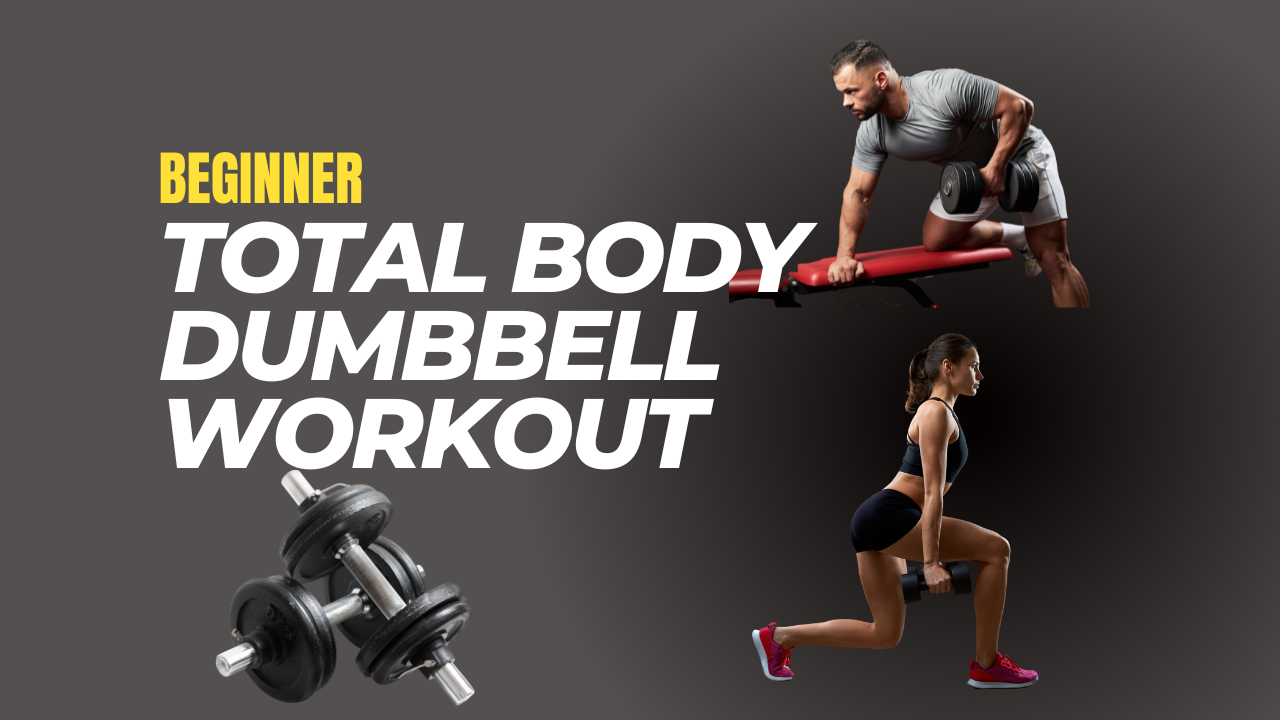
IN THIS POST
Build a solid strength training foundation with this beginner-friendly full-body dumbbell workout.
Pin this post and tell a friend to tell a friend. 💪🏾

Intro: Total body dumbbell workout for beginners
You’re a strength training beginner looking for a total body workout.
And I’m here to deliver you just that.
But first, let’s start with some general info about the workout and just strength training in general to help you as you move forward on your fitness journey.
Don’t just gloss over this section!
I would hate for you to be confused later on and not see the results you’re after.
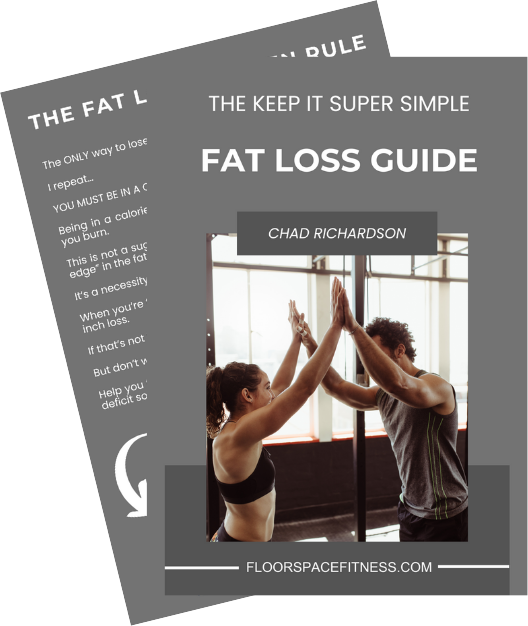
Total body dumbbell workout Q&A
How many times a week should I do this workout?
I’d recommend doing this workout twice per week, making sure to have at least one full rest day in between workouts.
For example, let’s say you workout on Tuesday.
You wouldn’t go through this workout again until Thursday at the earliest.
Or if your first workout day for the week is on Wednesday.
Friday would be the first possible day you would do this workout again.
How much weight should I lift?
First off, form > literally anything else.
It doesn’t matter how much weight you lift if your form isn’t on point because:
A.) You won’t target your muscles effectively.
B.) You set yourself up to be injured.
In terms of how much weight you should lift, that’ll depend on the exercise.
For example, you’ll be able to lift more weight on compound movements (exercise that works multiple muscle groups) like squat or bench press than you would isolation movements (exercises that work just one muscle group) like bicep curls or tricep extensions.
The more practice you get doing certain exercises, the better you’ll be able to gauge what’s heavy for you given the exercise.
How long will this workout take?
Around 45 minutes.
If you’re thinking that doesn’t seem long enough, I want you to give every single set in this workout your 100% maximum effort then come right back here and tell me what you think about it! 😉
What does progress look like?
Strength training progress = gradually lifting heavier and heavier weights over time.
Aka progressive overload.
Lifting heavier and heavier weights is far and away a better indicator you’re making progress toward your dream body (the one that has you looking in the mirror like “New body, who dis?”) than the number of calories you’re vastly inaccurate smartwatch says you burned.
How long until I see results?
Assuming your goal is weight loss, then, in general (keyword: GENERAL) you can expect to lose around 0.5-2 pounds per week.
But that won’t happen just by working out.
Strength training is just one part of the fat loss fat loss pie.
You have other things like nutrition (the largest slice of the pie), daily movement, sleep, and stress management.
Together, they help you create a calorie deficit.
Aka the one thing you need, above all else, for weight loss.
Related: The 18 biggest weight loss mistakes.
Total body dumbbell workout
Here’s the workout in totality:
- 1A.) Pause goblet squat: 3 sets x 8-10 reps
- 1B.) Push-ups: 3 sets x 10-15 reps. If this rep range is too easy for you, do 3 sets x AMRAP (as many reps as possible). Also, don’t worry. If you’re unable to do traditional push-ups from the floor, I have some alternative variations you can do!
- 2.) Reverse lunges (each leg): 3 sets x 8-10 reps
- 3.) Kneeling Arnold shoulder press 2 x 10-12 reps
- 4.) Bicep curl: 2 sets x 10-12 reps
*** 1A and 1B are what’s called a “superset.” A superset means performing a set of each exercise before taking a rest. In this case, you would perform a set of pause goblet squats and then immediately go into your set of push-ups.You only rest after you’re done with a set of both exercises. ***
Rest 2-3 minutes between each set (this is just a guideline).
If you need more rest than that then please, by all means, take it!
The important thing is that you’re actually resting between sets and not treating your strength training sessions like a cardio workout.
Weights are weights and cardio is cardio.
Mixing the two doesn’t give you the best of both worlds.
1A.) Pause goblet squat
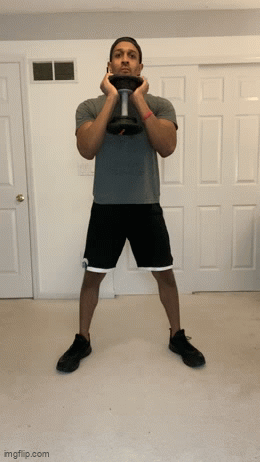
Goblet squat is a lower body exercise that primarily targets your quads, glutes, adductors (inner thigh), and core.
Adding a pause at the bottom of the movement takes out any momentum, which makes things a little more challenging.
But that’s good because progress doesn’t come from things being easy, am I right?!
When performing the exercise, your stance will dictate what muscles you target (toes should be pointing slightly outward regardless).
Feet roughly shoulder-width apart will target more of your quads while a wider stance will hit more glutes.
Remember, goblet squat is part of a superset so after you get done with one set here you immediately hop into a set of your 1B exercise…
1B.) Push-ups
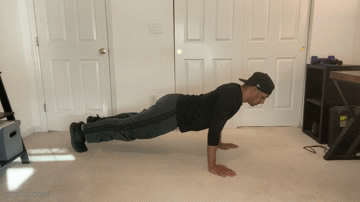
The sweet thing about push-ups is you don’t even need any workout equipment to do them.
Just your own body weight and you’re good to go.
Which makes them them the most convenient exercise you can do to build muscle and strength in your upper body.
Here are some cues to follow when performing push-ups:
- Make sure you’re not sticking your butt up in the air (I.e. keep your spine neutral)
- Brace your core by pretending someone’s about to punch you in the gut. Also, pretend you’re trying to hold a piece of paper between your butt cheeks.
- Hand placement: Roughly shoulder width apart or just a little outside that.
- Your wrists should be directly below your shoulders.
If you’re unable to do traditional push-ups from the floor right now, don’t sweat it at all!
Do these two things.
1.) Download this guide:
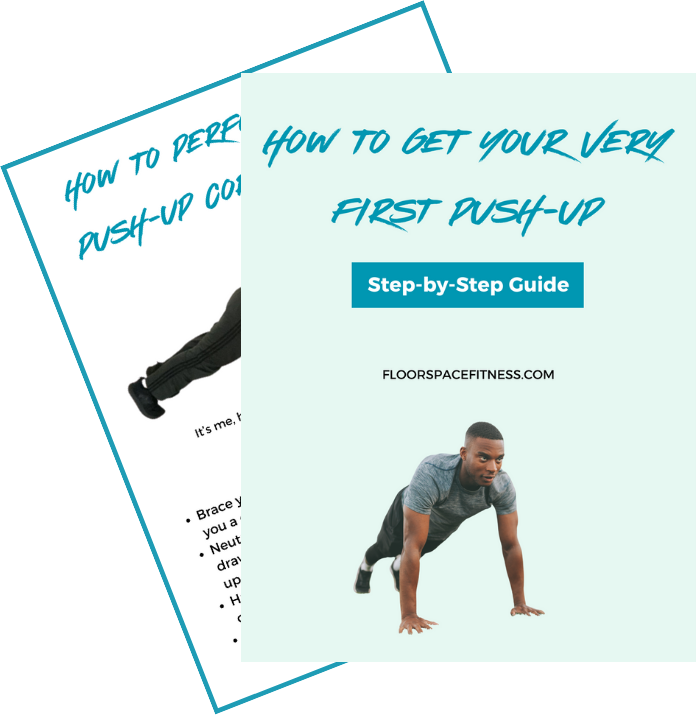
2.) Here are some alternate variations you can do that will help you build up the strength to do push-ups from the ground:
Incline push-ups (pick an incline level that’s suitable for you)
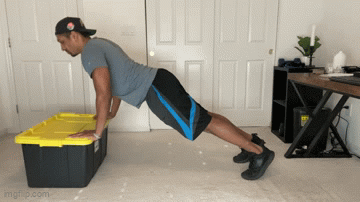
Wall push-ups

Related: Want a body weight exercise for your back and biceps? Try this guide designed to help you get better at chin-ups.

2.) Reverse lunges
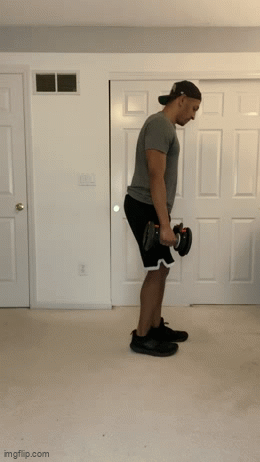
Reverse lunges mainly target your glutes, quads, and hamstrings.
Here are a few reverse lunge notes for you:
- The further you step back into your reverse lunge, the more you’ll hit your glutes.
- The issue a lot of people have with lunges is that they’re unable to maintain their balance. To help you out with that, I want you to do this: Instead of stepping straight back, think back and a little out to the side. That’ll give you a little bit of a wider base, which will help you with your balance.
- You don’t have to keep your body straight up and down as you’re doing your lunges. It’s okay to have a slight lean forward, just make sure you’re hinging at the hips and not rounding your back. To hinge at the hips, pretend someone’s karate chopping you right there.
3.) Kneeling Arnold shoulder press
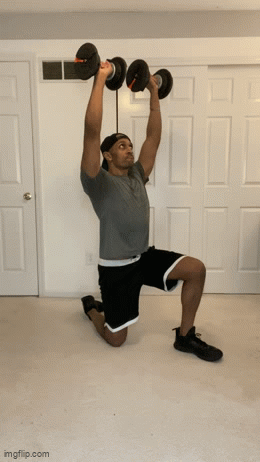
The Arnold press is a movement that hits all of the muscles in your shoulder.
Your core should be tight when doing Arnold press.
Again, a tight core = bracing like someone’s about to punch you in the stomach and clenching your butt cheeks together.
Also, be sure not to arch your back.
If the weight you’re using makes you do this, scale things back and go with a lighter weight that allows you to maintain proper form.
4.) Bicep curl
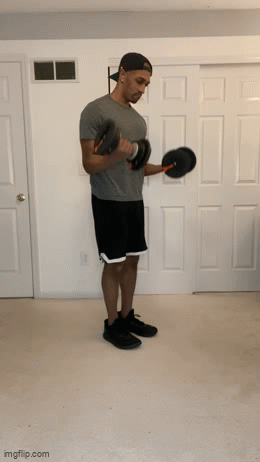
You’ll wrap up your total body workout with bicep curls.
Lift the weight up and instead of just dropping it straight down, lower it down nice and controlled.
To prevent swinging, using a bunch of momentum, or arching your back, you can do these with your back up against the wall (You should essentially be standing straight up and down).
12-week dumbbell workout program
Don’t get me wrong, two days a week is PLENTY to get started as a strength training beginner (especially when doing the workout I’ve just shared with you!).
But if you’re sitting there thinking, “Well, I kind of want to workout more than two days each week” here’s how I’d split up my workout schedule.
I’d either go with 3 or 4 days a week.
You don’t have to choose the same exact days but a 3-day-a-week workout schedule would look something like this:
- Monday: Lower body
- Wednesday: Upper body
- Friday: Full body
And 4 days a week would be an upper/lower split (I.e. doing two upper body workouts and two lower body workouts per week).
Here’s what that would look like:
- Monday: Lower body
- Tuesday: Upper body
- Thursday: Lower body
- Friday: Upper body
If you want a 3 or 4-day-a-week workout schedule, download my free 12-week dumbbell workout plan.
That’s 3 whole months of not having to worry about what exercises you should be doing or how to structure your workouts.
Everything’s all laid out for you in the program.
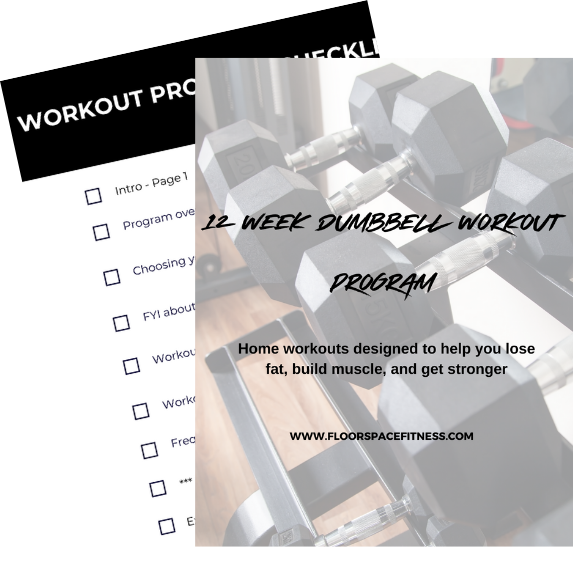
Now, I don’t want you to think you HAVE TO go with the 3-day or 4-day option.
Ultimately, the best workout schedule is the one you can be consistent with because consistency drives results, not being perfect.
Perfection is just an unrealistic expectation of yourself anyway.
Final words
Have any questions about anything in this article?
Let me know in the comments and happy strength training. 💪🏾

What's up?
I’m Chad, I’m happy you’re here! I’m a certified personal trainer and my goal is to help you form practical, sustainable habits that lead to lifelong fitness results. If you want to lose fat, build muscle, and live a healthier, happier life then you’re right where you need to be. 💪🏾
Free resources
⬇⬇⬇
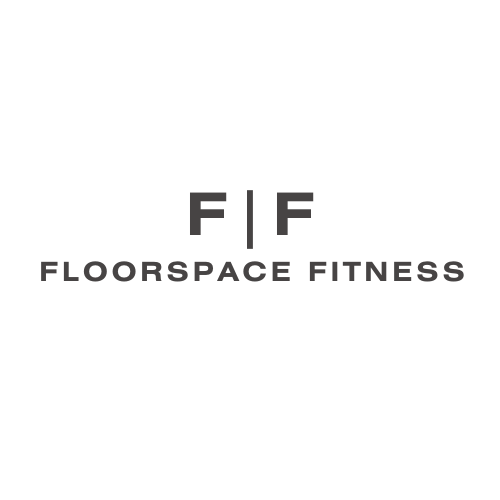

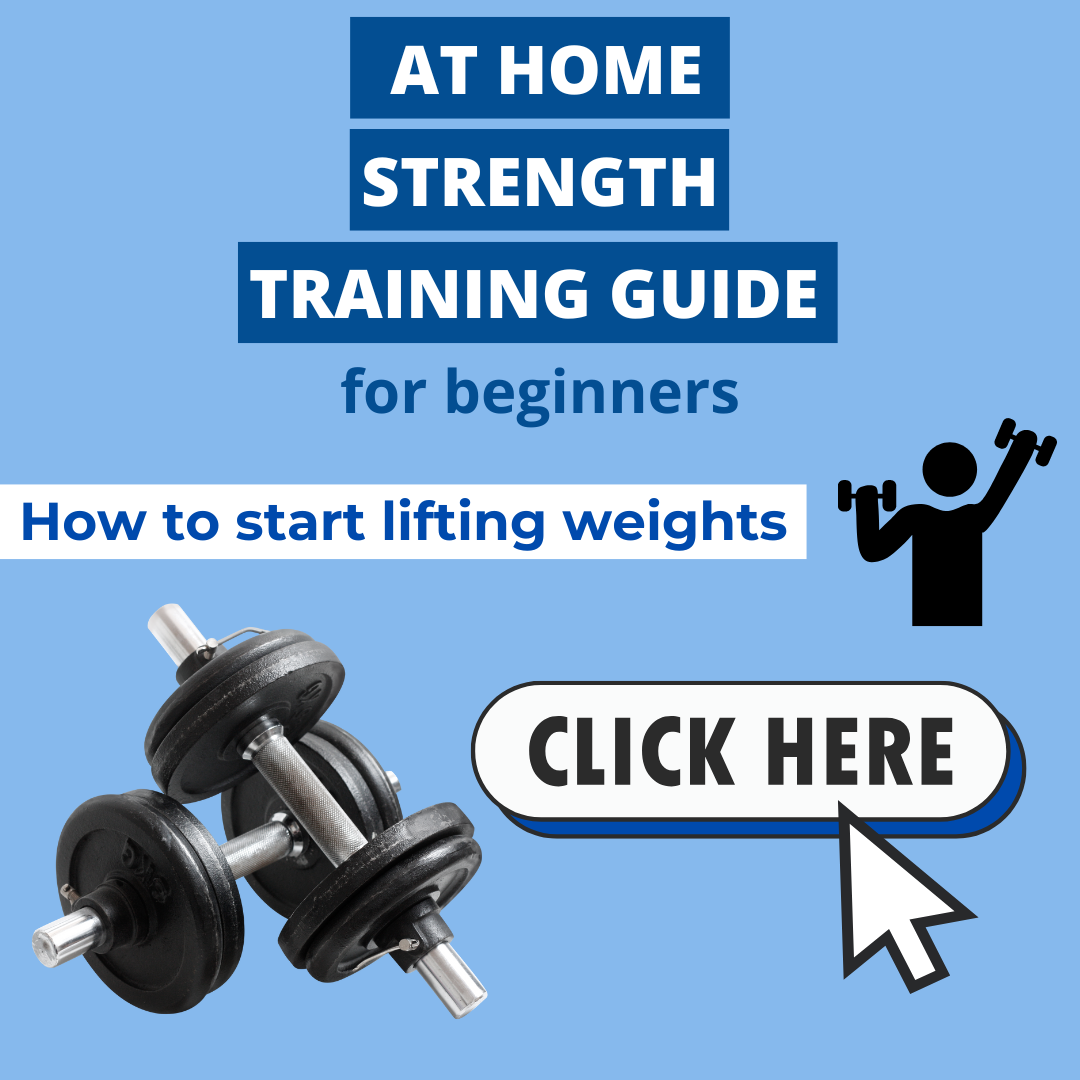
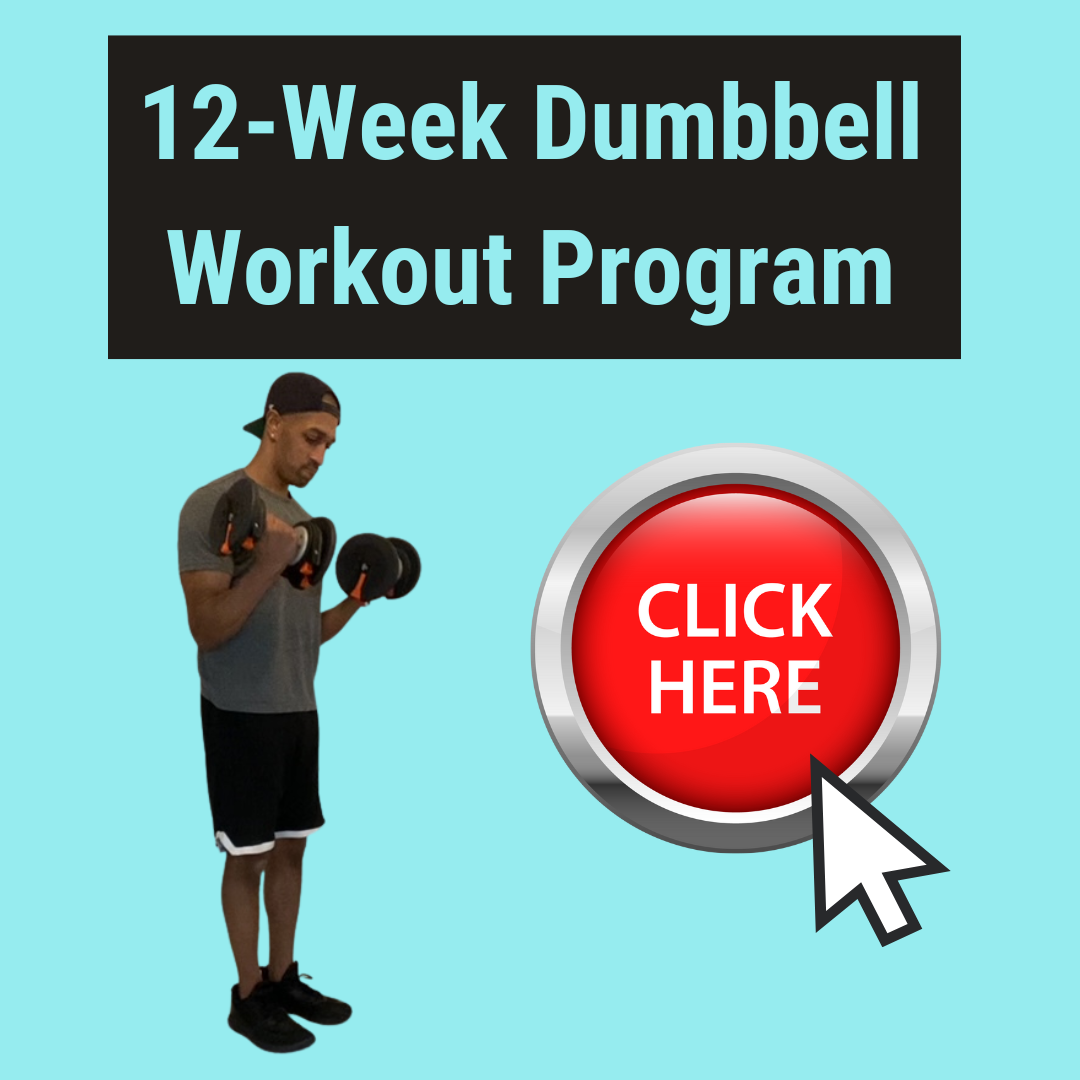

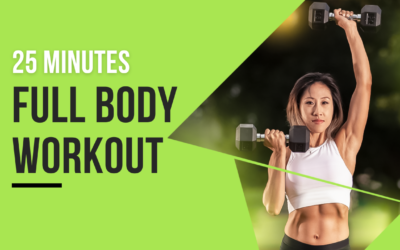


0 Comments